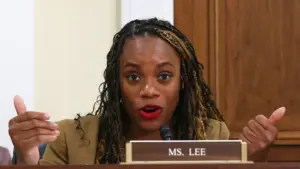America is at a crossroads. The abortion debate has dominated headlines for decades, culminating in the Supreme Court’s Dobbs decision, but the issue goes far deeper than legal arguments. It’s about what we, as a society, truly value. The sanctity of life is not just a talking point—it’s a principle that demands we confront the uncomfortable truths about personal responsibility and the culture of convenience that has undermined it.
A Crisis of Convenience
Let’s be honest: most abortions are not driven by desperation but by convenience. According to the Guttmacher Institute, over 90% of abortions are elective, performed not because of medical necessity but because the life created is viewed as an obstacle to someone’s plans. This is a brutal truth, but one we must face. When life is treated as disposable, we erode the moral fabric of our society.
No one wants to talk about the role of personal responsibility in this crisis. It’s easier to blame the system, the laws, or the circumstances. But actions have consequences. Choosing to engage in behavior that creates life comes with an obligation to take responsibility for that life. We cannot build a society that values human dignity if we continue to sidestep this fundamental truth.
Accountability Is a Moral Imperative
This is not about condemning women who face difficult choices. It’s about rejecting the broader cultural narrative that life can be sacrificed for convenience. Upholding the sanctity of life means demanding better—from individuals, families, and communities. Responsibility starts with the choices we make, but it doesn’t stop there.
Parents, educators, and faith leaders have a duty to teach accountability. Lawmakers have an obligation to reflect this value in our policies. If we fail to instill a respect for life and the consequences of our actions, how can we expect future generations to value them?
Policies Must Reflect Our Principles
If we claim to believe in the sanctity of life, our policies must back it up. This isn’t just about restricting abortion—it’s about creating a framework that supports life while holding people accountable for their decisions.
- Strengthen Adoption Options: Adoption is a life-affirming choice, but it’s buried under red tape and exorbitant costs. Streamlining the adoption process and promoting it as a viable option would provide real alternatives to abortion.
- Support Families Without Excusing Irresponsibility: Paid parental leave and affordable childcare can make choosing life easier, but these policies must go hand-in-hand with promoting personal accountability. Support should empower—not enable—irresponsibility.
- Reinforce Educational Accountability: Comprehensive education that focuses on the realities of parenthood and the consequences of choices can help build a culture of responsibility. Knowledge is power, and ignorance is no excuse.
The law is a reflection of what we value. If we continue to legislate as though life is negotiable, we betray the very principles that make a just society possible.
Rejecting the Excuses
Critics will say this is too harsh—that it fails to account for the challenges women face. But the real cruelty lies in pretending that the solution to these challenges is to end a life. Women deserve better than a society that tells them abortion is their only option. By shifting the focus to responsibility and support, we can address the root causes that lead to abortion without sacrificing our moral integrity.
This is not a comfortable conversation, nor should it be. But discomfort is no excuse for inaction. If we value life, we must be willing to fight for it—not with platitudes or half-measures, but with conviction and action.
A Call to Action
The sanctity of life is non-negotiable. It is the foundation of a just society, and we are failing to uphold it. This failure is not just in our laws but in our culture—a culture that excuses irresponsibility and devalues life for the sake of convenience.
This must end. We need leaders with the courage to challenge the status quo, citizens willing to hold themselves and others accountable, and communities committed to supporting life at every stage. The path forward is not easy, but it is necessary. Life is worth it.




